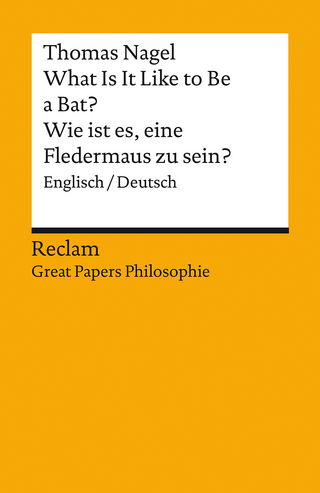
Crafting Phenomenological Research
Routledge (Verlag)
978-1-032-30383-3 (ISBN)
Crafting Phenomenological Research, Third Edition, continues to demonstrate its award-winning quality, clearly establishing itself as the leading international resource for those interested in a concise introduction to phenomenological research in education and social sciences.
As a leading contemporary practitioner of phenomenology, Vagle walks the reader through multiple approaches to designing and implementing phenomenological research, including his post-intentional phenomenology, which incorporates elements of poststructural thinking into longstanding phenomenological methods. Vagle provides readers with methodological tools to build their own phenomenological study, addressing such issues as research design, data gathering and analysis, and writing.
Replete with exercises for students, resources for further research, and examples of completed phenomenological studies, this book affords the instructor an easy entrée into introducing phenomenology into courses on qualitative research, social theory, or educational research.
New to this edition:
A new final chapter that introduces his latest developments in post-intentional phenomenology (PIP).
Updated "snapshots" and “resource digs” that provides brief commentary and/or examples to illustrate concepts and ideas, many of which draw on Vagle’s latest contemplative research study.
Updated discussions of important methodological concepts such as researcher reflexivity.
Mark D. Vagle is Professor of Education at the University of Minnesota, USA. For nearly 20 years, he has written and presented extensively on phenomenological research, and regularly teaches university courses and professional workshops on the subject. Currently, Vagle is integrating his conception of post-intentional phenomenology (PIP) with yoga/mindset/energy work.
Part I: Exploring Philosophical Concepts and Notions in Phenomenology 1. Phenomenology: A Historical Background 2. What Is a Phenomenon in Phenomenology? 3. What Is Intentionality and Why Is it Important? 4. The Importance of Prepositions Resource Dig (Part I); Part II: Phenomenological Research Approaches 5. Possible Methodological Approaches 6. Phenomenological Research Methodology: Research Design Considerations 7. Gathering Phenomenological Material 8. Analyzing Phenomenological Material in Descriptive, Interpretive, and Reflective Lifeworld Approaches Resource Dig (Part II); Part III: A Post-Intentional Approach to Phenomenological Research 9. Post-Intentional Phenomenological Philosophy 10. PIP Research Methodology: The Five-Component Approach 11. PIP Research Methodology: The PIP Triangle Resource Dig (Part III); Epilogue Appendix: Additional Resources
| Erscheinungsdatum | 17.09.2024 |
|---|---|
| Zusatzinfo | 8 Line drawings, black and white; 2 Halftones, black and white; 10 Illustrations, black and white |
| Verlagsort | London |
| Sprache | englisch |
| Maße | 152 x 229 mm |
| Gewicht | 453 g |
| Themenwelt | Geisteswissenschaften ► Philosophie ► Philosophie der Neuzeit |
| Sozialwissenschaften ► Pädagogik ► Erwachsenenbildung | |
| ISBN-10 | 1-032-30383-2 / 1032303832 |
| ISBN-13 | 978-1-032-30383-3 / 9781032303833 |
| Zustand | Neuware |
| Informationen gemäß Produktsicherheitsverordnung (GPSR) | |
| Haben Sie eine Frage zum Produkt? |
aus dem Bereich


